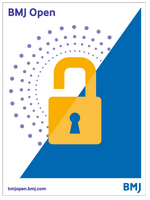 Myasthenia gravis results from the production of autoantibodies directed against the neuromuscular junction. Like other dysimmune diseases, it may have a genetic component.
Myasthenia gravis results from the production of autoantibodies directed against the neuromuscular junction. Like other dysimmune diseases, it may have a genetic component.
A recent retrospective study corroborates this hypothesis. It involved 1,032 patients with myasthenia gravis with anti-acetylcholine receptor (anti-RACh) autoantibodies followed in 14 healthcare facilities in North America. Published in September 2020, its results show that:
- 5.6% of participants report a family history of myasthenia gravis, most often in a mother, father, child, brother or sister; this familial prevalence is higher than expected for a sporadic disease;
- in this study, men had a slightly higher familial prevalence of myasthenia gravis than women (1: 1.32);
- 26.6% of participants have a personal history and 28.4% have a family history of another autoimmune disease (thyroiditis, hematological disease, rheumatoid arthritis, type 1 diabetes, etc.), which is much more than the prevalence of these pathologies in the general population (3 to 9%).
For the authors of this publication, autoimmune diseases may share a common genetic predisposition.
